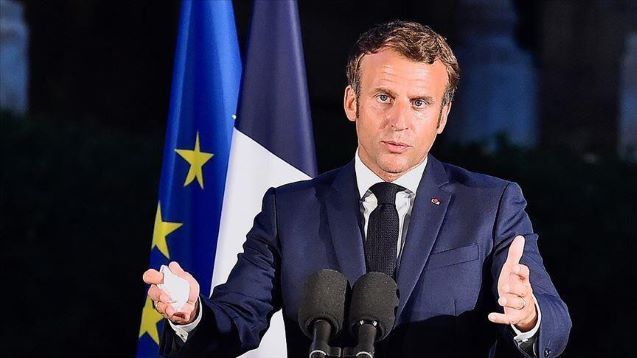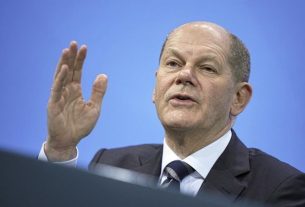Building factories to boost job creation and make France more independent – that’s President Emmanuel Macron’s ambition for the French economy.
It’s a big challenge, as France reels from protracted protests, rising food and energy prices and other fallout from the Ukraine war.
Macron last week announced a series of incentives to support innovative industries and transition towards greener technology.
They include tax credits in fields like battery production, electric cars, hydrogen and wind power, as well as accelerating authorization for industrial projects.
“France is changing, is getting adapted to the course of the world and I believe that we’re following the right path, which is to reindustrialize the country, to be more sovereign and more respectful of the climate and biodiversity,” Macron said on May 12 during a visit to Dunkirk.
Macron’s move comes after months of protests against his decision to raise the retirement age from 62 to 64.
The unpopularity of the reform has weakened his government at parliament and hampered his economic strategy.
Unions have called for a new round of nationwide demonstrations on June 6. Meanwhile, opponents keep staging small protests, with people loudly banging pots and pans in places where Macron and government members are scheduled to travel.
Credit rating agency Fitch last month downgraded France’s sovereign credit rating, citing the protest movement. “Political deadlock and (sometimes violent) social movements pose a risk to Macron’s reform agenda,” the agency wrote.
On May 12, Macron announced two major investments, both in the battery sector: one worth 5.2 billion euros ($5.7 billion) by Taiwanese group Prologium, the other one via a joint venture of China’s XTC with French energy giant Orano worth 1.5 billion euros. They are expected to create 3,000 and 1,700 jobs in the area respectively by 2030.
He seized the occasion to present the pension reform as part of a “package” that has already produced “results.” “If we want to be more competitive, we must work a little longer,” he said.
Since he took office in 2017, Macron has cut business taxes. He has made it easier to hire and fire workers and more difficult for the unemployed to claim benefits, amid other pro-business policies.
For a fourth consecutive year, France was the European country that had attracted the greatest number of foreign investments, Macron said, citing a survey by EY last week.__Daily Hurriyet





